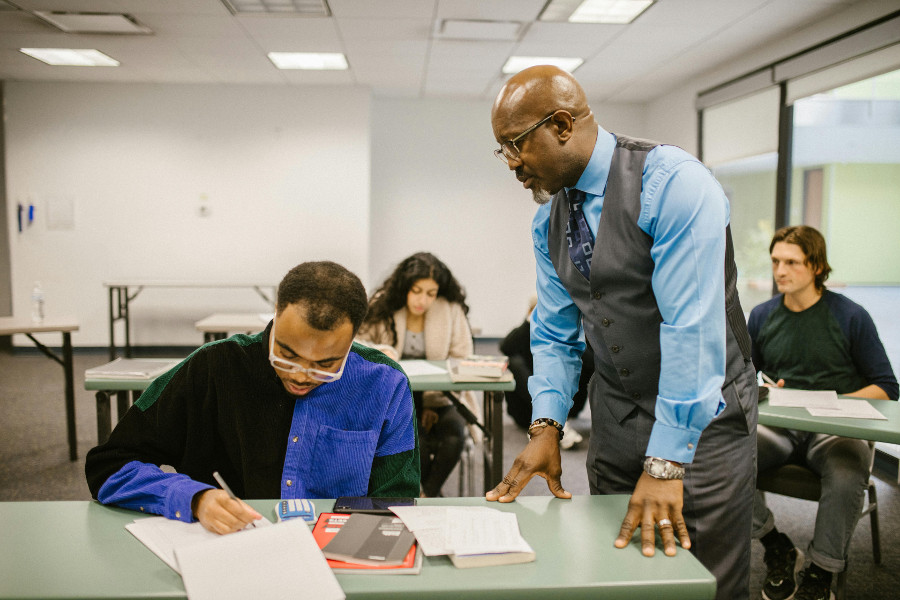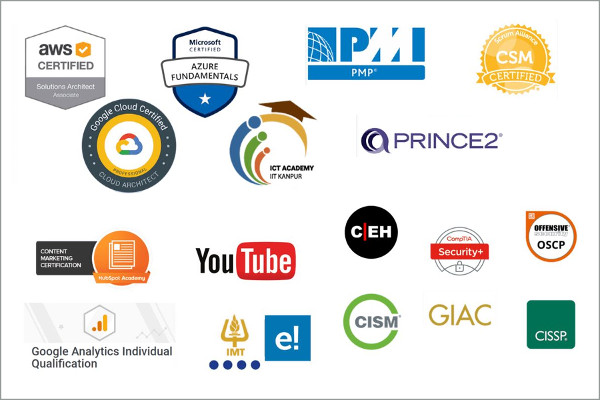Why Further Education is Crucial and How to Choose the Right Course
Further education has become a necessary step for anyone looking to thrive in today’s fast-paced world. It’s not just about earning a degree or diploma anymore - it’s about acquiring the skills, knowledge, and connections that will shape your future. Whether you want to move up in your current field, change careers entirely, or simply explore a passion, continuing your education can unlock doors to new possibilities. With so many options available, though, choosing the right course can be a bit overwhelming. In this article, we’ll explore why further education is so important and how you can pick the course that’s right for you.

The Importance of Further Education
1. Career Advancement
When it comes to professional growth, further education plays a significant role in opening new doors. It’s more than just about gaining more knowledge; it’s about positioning yourself for greater success in the workforce.
- Skill Development: Further education allows you to build specialized skills that set you apart from the competition. Whether it’s gaining proficiency in data analytics or learning a new programming language, adding advanced skills to your resume makes you a more attractive candidate for jobs.
- Better Job Opportunities: Most industries today require some level of higher education for positions beyond entry-level. Whether you're aiming for a leadership role or simply want to broaden your job search, additional qualifications often make the difference between being stuck or moving forward.
- Increased Earning Potential: Higher levels of education often correlate with higher salaries. As you advance in your education, you’ll likely see an increase in your earning potential, whether it’s through promotions, new job offers, or entering a more lucrative field.
2. Personal Growth
But the benefits of further education aren't just professional - they’re also deeply personal. The learning process can be transformative, shaping you into a more well-rounded individual.
- Broader Knowledge Base: Further education gives you the opportunity to dive deeper into subjects you’re passionate about. This could mean specializing in a specific area within your field or expanding your general knowledge in a way that makes you a more well-informed person overall.
- Critical Thinking and Problem Solving: At higher levels of education, you’re often required to think more critically and analyze problems from different perspectives. These skills are valuable not only in your professional life but in personal situations as well. Whether you're making big decisions or just weighing the pros and cons of a situation, this kind of thinking can help you make more informed choices.
- Networking: One of the most underrated benefits of further education is the people you meet along the way. Whether you’re connecting with classmates, instructors, or industry professionals, these relationships can serve you in countless ways - leading to job opportunities, collaborations, or simply new insights into your career and personal life.
3. Adapting to Changing Industries
In today’s world, industries are evolving faster than ever, and further education is one of the best ways to keep up with these changes. Whether it's new technology or changing consumer behavior, staying on top of these trends is critical if you want to remain relevant in your field.
- Industry Evolution: Industries are constantly evolving, and the demand for new skills is always increasing. Take technology, for example. Innovations in fields like AI, machine learning, and cybersecurity are constantly reshaping the workforce. Further education ensures you're well-equipped to adapt to these changes and continue to grow in your field.
- Flexibility and Agility: Many people are choosing to shift careers entirely, and further education provides an excellent way to make that transition. If you’re looking to move into a completely new field, pursuing an additional qualification can smooth the process and make you a more attractive candidate in a new industry.
4. Job Satisfaction and Confidence
Finally, further education doesn’t just help you grow professionally - it can also lead to a more fulfilling life overall. By gaining new knowledge and skills, you can feel more confident and satisfied in your job, which can have a ripple effect on other areas of your life.
- Confidence in Your Abilities: There’s something incredibly empowering about knowing that you have the knowledge and skill to take on new challenges. With further education, you’ll be able to approach tasks with greater confidence, whether it’s taking on a leadership role, presenting to clients, or simply tackling a complicated project.
- Passion and Interest: Pursuing a course in an area you’re passionate about can lead to greater job satisfaction. If you’re studying something that truly excites you, you’re more likely to find a career that brings you joy and fulfillment, not just a paycheck.

How to Choose the Right Course
When it comes to choosing the right course for your needs, it can feel like a massive decision. After all, the course you pick could shape your entire future. But don’t worry - it’s not as overwhelming as it sounds. Let’s break it down into manageable steps.
1. Identify Your Goals
Before you dive into researching courses, take a moment to think about your long-term goals. What do you want to achieve through further education? Clarifying your goals upfront will help guide your decision-making process.
- Career Path: What are your professional ambitions? Do you want to climb the ladder in your current field or switch to something entirely new? Your choice of course should align with where you want to go in your career.
- Long-Term Vision: It’s also important to think about where you see yourself in the future. Do you want to specialize in a particular area, or do you want a broader skill set that gives you more flexibility? Identifying these goals will give you a clear sense of direction when it comes to choosing the right course.
2. Research the Industry
To make an informed choice, you need to understand the job market and what qualifications are in demand.
- Current Trends: Are certain industries growing faster than others? Take a look at which sectors are expanding and what kinds of qualifications are most in demand. Technology, for example, is booming, with fields like artificial intelligence and data science seeing a huge influx of opportunities.
- Job Market Demand: It’s helpful to research job postings in your field to see what qualifications employers are looking for. This will give you a sense of what skills and knowledge are currently in demand, helping you choose a course that aligns with the needs of the job market.
3. Consider Course Content
Not all courses are created equal, so it's important to look at the specific curriculum to ensure it meets your needs.
- Curriculum: A course may look good on paper, but does it offer the kind of training you’re seeking? Make sure the curriculum covers the topics that are most relevant to your goals. Look for programs that offer a blend of theory and practical skills, as these are often the most valuable.
- Hands-On Learning: If your field requires practical experience, look for courses that offer hands-on opportunities. Whether it’s through internships, fieldwork, or lab sessions, gaining practical experience will give you a significant advantage when it comes to applying what you’ve learned.
4. Accreditation and Recognition
When choosing a course, it’s important to ensure that the qualification you’ll earn is recognized and respected in your field.
- Credibility: Make sure the course or institution is reputable. You want to choose a program that has a strong reputation and is recognized by employers in the industry.
- Certification: Look for programs that offer certifications or diplomas upon completion. Some certificates are recognized industry-wide, which can be valuable when applying for jobs.

5. Cost vs. Return on Investment
Education can be expensive, so it’s essential to think about the costs and whether they’re worth the investment.
- Affordability: Tuition fees can vary widely, so take the time to evaluate whether the course fits within your budget. Consider any financial aid, scholarships, or other funding options that may be available to help cover costs.
- Return on Investment: It’s also important to think about the potential return on investment. Will the course help you secure a higher-paying job or open doors to more opportunities? If the answer is yes, then the investment may be well worth it.
6. Study Mode and Flexibility
The way you study is just as important as what you study. Think about how you learn best and what kind of schedule works for you.
- Full-Time or Part-Time: Do you have the time to commit to full-time studies, or would a part-time course be more feasible? Many programs offer flexible schedules to accommodate different lifestyles.
- Online vs. On-Campus: Some people prefer the flexibility of online courses, while others benefit from in-person interactions. If you’re considering an online course, make sure it offers enough opportunities for interaction with instructors and peers to enrich the learning experience.
7. Accreditation and Employer Recognition
Finally, consider whether the course you choose is recognized by employers in your field.
- Employer Connections: Some educational programs offer networking opportunities, internships, or partnerships with companies that help students secure jobs after graduation. If job placement is important to you, look for courses with strong employer connections.
8. Seek Advice
If you're still uncertain about which course to choose, don't hesitate to ask for advice.
- Talk to Experts: Reach out to professionals in your field, career counselors, or even alumni who’ve completed similar courses. Their insights can help you make a more informed decision.
Conclusion
Choosing to pursue further education is one of the best ways to invest in your future, whether you're looking to advance in your current career, change paths, or gain new skills. By considering your goals, researching industries, and carefully evaluating courses, you can find the right program that will set you up for success. Remember, the right course isn’t just about qualifications - it’s about finding a path that excites you and helps you grow both professionally and personally. With the right education, the possibilities for your future are endless.



